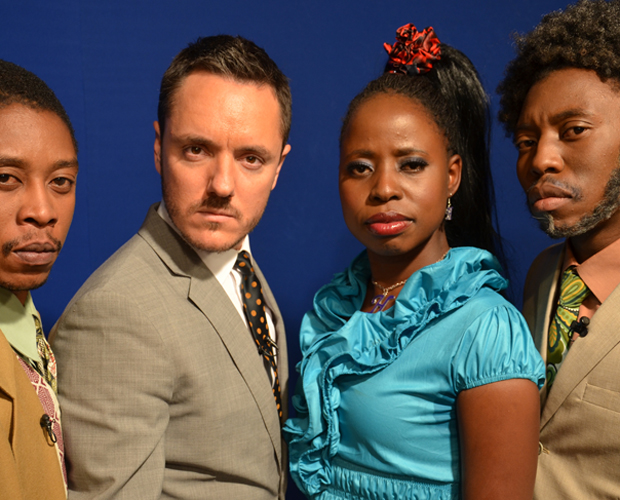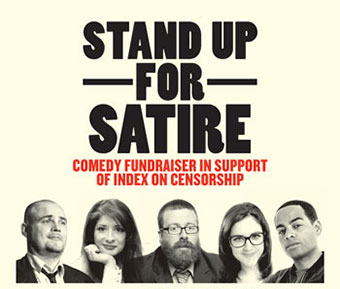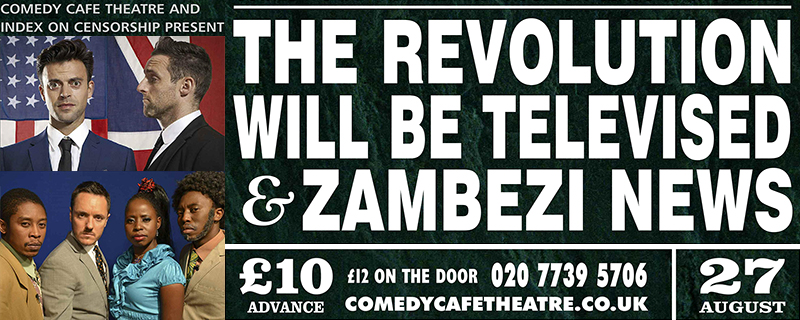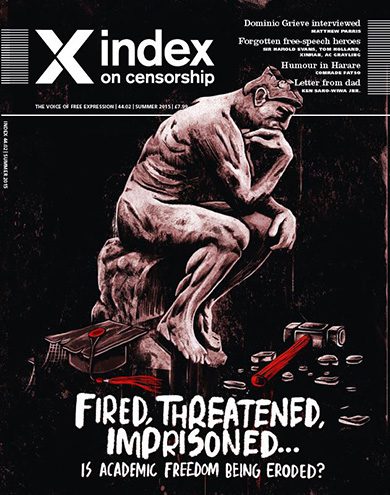16 Aug 2024 | Africa, News and features, South Africa, Zimbabwe
Zimbabwe is in the throes of a deepening human rights crisis ahead of hosting a Southern Africa Development Community (SADC) summit on Saturday when its leader Emmerson Mnangagwa, who has deployed army tanks in townships and launched a major crackdown against dissenting voices, will assume the bloc’s chairmanship.
The escalating harassment of pro-democracy campaigners, human rights defenders, political activists, student leaders and ordinary residents, some of whom have severely been tortured, came with dire warnings.
There is evidence that the state repression was planned at the highest levels within the country’s corridors of power as speeches by key figures sparked off a chain of frightening events.
On 27 June, while addressing his ruling party’s Central Committee, Mnangagwa said “rogue elements” bent on peddling falsehoods and instigating acts of civil disorder before, during and after important meetings would be dealt with “decisively.”
On 31 July, George Charamba, Mnangagwa’s spokesperson told the state run media there was a foreign hand in efforts to destabilise the country, and ominously warned that locals involved would be taught “a lesson.”
“It would appear they haven’t learnt their lessons,” Charamba said. “They should know that the Government is not just willing but is capable of delivering to them a lesson that is handsomely appropriate,”.
It’s the same message that the presidential spokesperson sent out while serving in the same capacity on behalf of former boss Robert Mugabe who was deposed by Mnangagwa in a coup in November 2017.
Following Mnangagwa’s takeover, there was cautious optimism in some circles that Zimbabwe would turn a corner after 37 years of dictatorship, but Zimbabweans found they were in for more of the same: official corruption, state sponsored violence, widespread poverty, unemployment, economic ruin and general decadence in the country’s cities and towns.
Mnangagwa’s recent threats were followed by horrific repression on the ground enforced by terror. Human rights organisations report 165 people have so far been caught up in the campaign to suppress freedom of expression and assembly.
Some of those punished in Mnangagwa’s latest crusade include 25-year-old Namatai Kwekweza, a human rights activist, and three others Robson Chere, the Secretary-General of Amalgamated Rural Teachers Union of Zimbabwe (ARTUZ), Samuel Gwenzi, the director of the Zimbabwe Human Rights Monitors Platform and Vusumuzi Moyo,an artist and sound engineer who were forcibly removed from a plane at Robert Mugabe International Airport by State agents on 31 July.
They were detained incommunicado for several hours and subjected to torture and later taken to court. The African Initiative of Women Human Rights Defenders which monitored the case of Namatai, who last year won the inaugural Kofi Annan NextGen Democracy Prize said “the torture inflicted upon her is beyond comprehension: being hit with open hands, clenched fists, wooden planks, and iron bars.”
Other human rights lawyers said Chere suffered extensive injuries that put him at risk of kidney failure and death. The Zimbabwean Lawyers for Human Rights has since said prison officials blocked his medical practitioner of choice from attending to him on 10 August.
The latest crackdown by Mnangagwa’s regime has not gone unnoticed. On 14 August, the United Nations Human Rights Office said it was concerned by reports of arrests, harassment and intimidation of human rights defenders and political activists in the lead up to the summit.
There are now diplomatic efforts to push Mnangagwa to stop the persecution. The Southern Africa Human Rights Defenders Network has been writing to leaders of countries that will attend the SADC summit voicing concerns.
In one letter dispatched to South Africa’s International Relations and Cooperation Minister, the Southern Defenders chairperson, Professor Adriano Nuvunga detailed the repression. He said one person was charged with “public violence” for participating in an anti-government protest five years ago.
Nuvunga said the latest crackdown began on 16 June targeting 78 members of the Citizens for Coalition Change including the party’s interim leader Jameson Timba who were celebrating the International Day of the African Child at a private residence.
He added that that during the arrests, police used baton sticks and fired teargas at the group, resulting in injuries; including an extensive injury to one member which required surgery.
The activists are still locked up. In an interview with Index, Human Rights Lawyer Alec Muchadehama said charges like acting with disorderly conduct in a public place – for which activists like Namatai were tortured – are minor offences that would normally carry at worst a $200 fine.
He added that most of the alleged crimes fall into the category of what are known as miscellaneous offences, such as spitting on someone. For other offences such as accusations of illegal gatherings, police must just disperse gatherings, not cordon off the area and make dragnet arrests. He went on to say that as police know that the arrests are unlawful, hence come up with flimsy charges such as disorderly conduct, criminal nuisance and participating in an illegal gathering to sanitise them.
The human rights lawyer said the first bastion of defence when police act in such an illegal manner is for prosecutors not to take such matters to court.
“One of the greatest disappointments of our time is that prosecutors now take such matters to court as a matter of routine,” said Muchadehama.
Then there are courts who deny people freedom when the alleged minor offences come before them.
“Most of the judgments that have been handed down, I have respectfully disagreed with such judgments,” added Muchadehama.
In an X Space on Zimbabwe’s Human Rights Crisis and the SADC Summit organised by the Resistance Bureau on Wednesday, a former student leader Nancy Njenje who was constantly harassed by state agents and was once arrested and placed in crowded cells where she caught Covid-19 in 2021, said Zimbabwe’s courts have been captured by the ruling regime.
In one recent case, opposition leader Job Sikhala spent more than 500 days in pre-trial detention while facing trumped up charges of incitement to commit violence, disorderly conduct and obstruction of justice charges, with the courts denying him bail.
Njenge said the unfortunate thing about the crisis unfolding in Zimbabwe is that there is no coordinated effort to fight the status quo.
“Zimbabwe is under an institutional capture, we are not just fighting Zanu-PF to go, we are fighting all the institutions that Zanu-PF has captured. We are fighting the police, we are fighting the courts,” Njenge said.
She said people must not leave their struggles in the hands of the opposition but must use protests to express themselves.
In an interview with Index, Tawanda Muchehiwa, who is now living in the UK after fleeing Zimbabwe where he was abducted by state agents and tortured, said Mnangagwa has not changed his bad habits, despite his pretensions. He said Mnangagwa’s regime was desperately trying to prevent the emergence of fresh ideas and progressive thinking.
Unlike others who are languishing in jail after being tortured, Muchehiwa was lucky to get a scholarship to study at the University of Leicester where he graduated with a Bachelor of Law (LLB) last month.
“I was blessed to have good people around me who offered their kindness and support during this challenging time. Their assistance was invaluable in helping me reorganise my life after the brutal ordeal I had endured, allowing me to focus on my studies and healing,” he said.
As Mnangagwa looks for other people to lock up, he is at the same time preparing to roll out the red carpet for SADC leaders for the Saturday meeting.
Calls for the summit to be moved to another venue have been ignored.
One of the parties in South Africa’s governing alliance, the Democratic Alliance said South Africa, as a leading member of the region, must advocate for the summit to be moved to a location that upholds and respects democratic values.
“By abusing state machinery to violate the rights of Zimbabweans, the unrepentant ZANU-PF regime has demonstrated that it is prepared to go to any lengths to violate the law in order to entrench its authoritarian rule. South Africa, and by extension the SADC, have an obligation to hold the Zimbabwean government to account,” the DA said.
“Allowing the summit to proceed under the current circumstances will not only endorse ZANU-PF’s flagrant abuse of international law, but further undermine the principles upon which SADC was established. “South African opposition leader Musi Maimane went on to describe Mnangagwa as an “evil dictator.”
28 May 2024 | Africa, News and features, South Africa, Zimbabwe
Two years ago, South Africa was named the most unequal country in the world in a World Bank report. This in a country where apartheid was dismantled 30 years ago. As the country goes to the polls on 29 May, inequality is proving to be at the heart of the debate which is stoking claims that freedom of expression is under threat.
Arthur Shopola, a lecturer in the Department of Public Administration and Local Government at South Africa’s North West University, says nothing has changed since the World Bank report and that failure to deliver for the electorate is due to ineffective leadership and poor management of public resources, corruption as well as maladministration.
He said South African citizens continue to enjoy some rights brought about by the democratic regime, particularly universal suffrage, but the ballot has not translated into the tangible results that people yearn for.
“Poverty, high levels of unemployment and inequality remain pressing issues for ordinary South Africans,” Shopola told Index.
Crucially, the land question remains unaddressed, he said.
“The right to equality is an area that the state has failed to promote. Also, everyone has a right to access clean water. This is one of the rights that SA has dismally failed. Just recently, over 100 people in Hamanskraal (Gauteng province) were admitted and many died because they were supplied with unclean water. There are many people in various parts of the country who still drink and wash clothes from the rivers. It’s sad,” he added.
Earlier this month, the main opposition party, the Democratic Alliance (DA), released an advertisement featuring the burning of the South African national flag. President Cyril Ramaphosa criticised the advert, telling the BBC: “South Africans are more educated, empowered and healthier than they were under apartheid,” and people must not threaten that progress.
South Africa’s national broadcaster banned the advertisement, sparking outrage among freedom of expression advocates who said it sets a dangerous precedent. They also contended that the Constitutional Court has recognised that the right to freedom of expression is not limited to statements that are moderate and inoffensive, but extends to those that offend, shock or disturb.
DA leader John Steenhuisen, in a speech delivered on 9 May, said the advertisement is the most successful political advertisement in South Africa’s democratic history – with over four millions views online and millions more on radio and TV. He said it symbolises “how South Africa’s flag, Constitution and future would burn to ashes if voters allow destructive populists to seize power”.
Steenhuisen also condemned the banning of the advert.
“This attack on free speech and suppression of the opposition only confirms the urgency of the DA’s warning contained in the ad. The ANC’s clampdown on freedom of speech to protect itself from criticism is but a small foretaste of what is to come under the ANC/EFF Doomsday Coalition, which will burn our flag, burn our democracy and burn our economy to the ground,” he said.
Steenhuisen talked of the hardships that ordinary South Africans now face – the single mother struggling to put food on the table for her children, the unemployed father who has lost his job because the ANC destroyed the economy and the young graduate who has been reduced to begging on street corners.
The alarm over the possible direction of South Africa is not only shared by South Africans in general or the DA in particular. Vitalis Dhokwani, a Zimbabwean living in South Africa since 2018 after fleeing economic ruin back home, said there are tell-tale signs that the country could head in the direction of Zimbabwe. Dhokwani said South Africa is going through what Zimbabwe went through: corruption by political elites, abuse of the law, lack of accountability and transparency. He said there are similarities between Zimbabwe’s ruling party, Zanu-PF, and South Africa’s ANC, both liberation parties who have betrayed promises of independence.
“People’s spending power has gone down and the cost of living has gone up. Health services were free to everyone but now even locals are paying,” said Dhokwani.
“South Africa is going the same way Zimbabwe went: corruption, rampant abuse of power. I really feel you can’t separate the ANC and Zanu-PF. These revolution parties abuse the tag of revolution parties. Just because they liberated the country does not mean they must make themselves rich while the poor get poorer.”
He criticised political parties who blame immigrants for South Africa’s problems. Dhokwani said South Africa is suffering from misgovernance and corruption from the people who were put in office.
“We can’t blame immigrants for failure of councils. How can one blame foreigners on service deliveries from council? Generally most immigrants are not formally employed they do self-employed jobs and some immigrants have even created for employment for locals as jobs are hard to come by,” he said.
In a statement on 6 May, Human Rights Watch said the scapegoating and demonising of foreign nationals by candidates in South Africa’s general elections risks stoking xenophobic violence. The human rights watchdog detailed a number of cases in which South African politicians had promoted hate against immigrants. It said candidates were pushing a narrative not just that migration is out of control, but blaming undocumented migrants for the country’s ills and engaging in xenophobia.
Shopola, the public administration lecturer, said politicians blaming immigrants were embarking on an opportunistic theorisation of the problems facing SA. “It’s a misdiagnosis. My worry with that theorisation is that it is loaded with hatred, not only hatred but self-hate and disingenuousness by those who push the narrative,” he said.
“What is failing is the laws and systems put in place to attend to issues of land, employment and the economy which is still in the hands of the few.”
14 Jul 2015 | Magazine, mobile, Volume 44.02 Summer 2015, Zimbabwe

Zambezi News cast, pictured left to right – Michael Kudakwashe, Samm Farai Monro, Chipo Chikara and Tongai Makawa
The Zimbabwean Minister of Impending Projects proudly stands in front of a mine that he has christened Mine Mine. “Because,” he says, “it’s mine. And because a diamond mine is a minister’s best friend.” This corrupt politician who has never completed a single programme in his department, is a fictional character on Zambezi News, a satirical show I helped create, with fellow activist Outspoken.
Zambezi News has become Zimbabwe’s leading satirical programme, reaching millions of viewers across the country and the whole continent. The show is a parody of the state-controlled propaganda machine, the Zimbabwe Broadcasting Corporation, and mimics the station’s sycophancy to the ruling party, the Zimbabwe African National Union Patriotic Front (Zanu PF). Quite frankly, our show started off by fluke. Outspoken and I have a background as spoken word and hip-hop artists and were approached by a friend involved in a local film festival to do a live news skit. When it aired at the festival and was really well received, we knew we were on to something.
We shot the first season in 2011 as a faux news show with three comic newscasters. The show cut between the newsroom and satirical reports from the field and featured a string of outrageous characters. We even did a special episode for the 2013 elections where our newscaster, Mandape Mandape, showed how easy it is to vote – unless you are young, urban and likely to vote for the opposition. We publicised the show around the country using partners ranging from community radio stations to activist groups. We also pushed it heavily on social media and shared the videos on YouTube. Interest was so great we then produced 10,000 DVDs, which were requested in more than 100 different towns and villages in Zimbabwe. Since then we have shot two more seasons. The show has been viewed by six million Zimbabweans, and we have been invited to do live shows in Sweden, South Africa, Swaziland and the USA.
The fact that there is thriving satire in Zimbabwe and that we, as the cheeky cast of Zambezi News, are still alive confuses a lot of people. Most TV and radio in Zimbabwe is controlled by the state or cronies of the ruling party, so the public has a growing appetite for comedy and satire that present an alternative voice. People like to laugh and think about our crazy situation at the same time.
“Political satire has provided comic relief to many Zimbabweans, but, above all, it has been an innovative way of speaking truth to power,” said political commentator Takura Zhangazha. “Zambezi News is key in carrying on this tradition especially across various media spectrums and between generations.” The fact that we’re still alive? Well, I guess that’s down to luck and the fact that we hide in plain sight.
 Index on Censorship has been publishing articles on satire by writers across the globe throughout its 43-year history. Ahead of our event, Stand Up for Satire, we published a series of archival posts from the magazine on satire and its connection with freedom of expression.
Index on Censorship has been publishing articles on satire by writers across the globe throughout its 43-year history. Ahead of our event, Stand Up for Satire, we published a series of archival posts from the magazine on satire and its connection with freedom of expression.
14 July: The power of satirical comedy in Zimbabwe by Samm Farai Monro | 17 July: How to Win Friends and Influence an Election by Rowan Atkinson | 21 July: Comfort Zones by Scott Capurro | 24 July: They shoot comedians by Jamie Garzon | 28 July: Comedy is everywhere by Milan Kundera | Student reading lists: Comedy and censorship

However, being a leading satire show and poking fun at the powerful, comes with risks: one of our main actors in Zambezi News has been threatened by people we suspect are state security agents. The actor was approached after we launched our first season in 2012. He was threatened for working on an “anti-government, regime-change agenda” and told that he would be “dealt with”. Our content is blacklisted on state-controlled radio and TV, while we often get attacked by Zanu PF-aligned bloggers who write that we produce “anti-government propaganda”. Earlier this year, as we prepared to launch our third season, the police called up to ask if we had “police clearance” to do so. We also get harassed by the officials from the censorship board and the Central Intelligence Organisation who ask us: “Do you have accreditation and clearance to do this?” I guess this means that they are watching our show, so half our job is done.
We are not alone. Other online satirical shows are emerging, including PO Box, The Comic King Show and LYLO, to name but a few. PO Box has been a viral success in Zimbabwe with its weekly five-minute skits posted on Facebook with the skits getting 20,000 views in two days. The show deals with the country’s social and economic issues and has the cast playing everything from corrupt politicians to victims of xenophobic violence in South Africa. “Comedy and satire depict society’s stance and are the voice of the ordinary people to the elite,” said PO Box creator Luckie Aaroni.
Many outsiders wouldn’t expect to discover Zimbabweans poking fun at the powerful, or mocking the president and his wife, an act that was taboo until recently. “It’s a reflection of the times,” said leading comedian and comedy promoter, Simba The Comic King. “Things are hard, so people might as well laugh about them. That’s their form of protest.” There are also standup shows in the main cities of Harare and Bulawayo. Bulawayo’s gritty Umakhelisa Comedy Club regularly features the city’s top comedians, who joke about the tough social and economic realities that are modern Zimbabwe. Harare’s two leading monthly comedy events, the Bang Bang Comedy Club and Simuka Comedy, often attract capacity crowds to their hard-hitting shows.
Stand-up comedy emerged in Zimbabwe in the 1990s but today has grown into something more daring, where comedians are continually pushing boundaries. However, the authorities don’t always think the jokes should be shared with the public. “A couple of times I have been approached by presumed state security agents who have told me that certain jokes are funny, but get them out of your set if you want to live till the next show,” said Simba. Such threats are real and common in the country. It’s a recurring joke in Zimbabwe among artists: you have freedom of expression, but not freedom after expression.
Despite these trends, Zimbabwe is not an easy place to perform. The state has basically used a carrot-and-stick approach with artists. The carrot is the 75 per cent local-content policy on all state-controlled radio and TV, introduced in April 2000 by the Zanu PF government. For musicians, this means your songs will get played if you aren’t dissing the government and they will get played even more so if you are praising it. And if you’re known to be obedient, Zanu PF might also book you to play at one of its many galas, where taxpayers’ money is used to enchance the party’s image. The stick approach is more straightforward: critical artists get no state support, won’t have their songs played on radio and TV, and are likely to be harassed and threatened.
Artists such as comic character Dr Zobha get airplay on state-controlled radio as they are seen as obedient and toeing the party line. Whereas Zimbabwean music legend Thomas Mapfumo, a national hero for his role in the liberation struggle, was hounded out of the country in 2001 after releasing music critical of Zanu PF. Mapfumo now lives in self-imposed exile in the USA.
With more and more young people online in Zimbabwe sharing videos and content on Facebook and WhatsApp, we now have more and more alternative means of disseminating our content. And considering our politicians aren’t going to stop being clowns anytime soon, we definitely won’t be running out of things to say. So we’ll keep striving to build a new country. One joke at a time.
© Samm Farai Monro
 This article is part of the culture section of a special issue of Index on Censorship magazine on academic freedom, featuring contributions from the US, Ukraine, Belarus, Mexico, India, Turkey and Ireland. Subscribe to read the full report, or buy a single issue. Every purchase helps fund Index on Censorship’s work around the world. For reproduction rights, please contact Index on Censorship directly, via [email protected]
This article is part of the culture section of a special issue of Index on Censorship magazine on academic freedom, featuring contributions from the US, Ukraine, Belarus, Mexico, India, Turkey and Ireland. Subscribe to read the full report, or buy a single issue. Every purchase helps fund Index on Censorship’s work around the world. For reproduction rights, please contact Index on Censorship directly, via [email protected]
2 Dec 2011 | Africa, Index Index, minipost
A Zimbabwean newspaper is facing a defamation suit from a retired colonel. ZANU-PF member Claudius Makova is suing local paper the Masvingo Mirror for USD 100,000 after it published a story referring to Makova’s alleged interests in Bikita Minerals, the country’s sole lithium producer. Makova claimed the defamatory statements lay in references to him as “stupid and greedy,” and said his reputation had been damaged.




